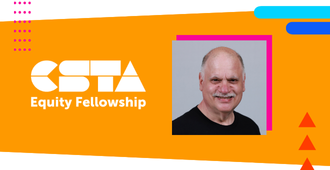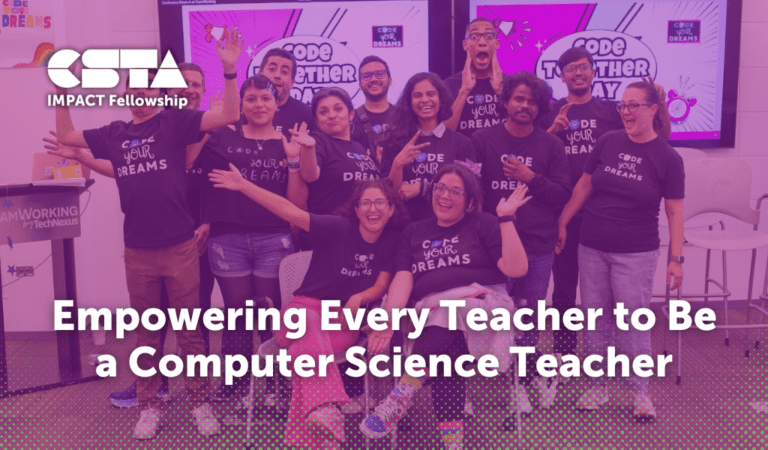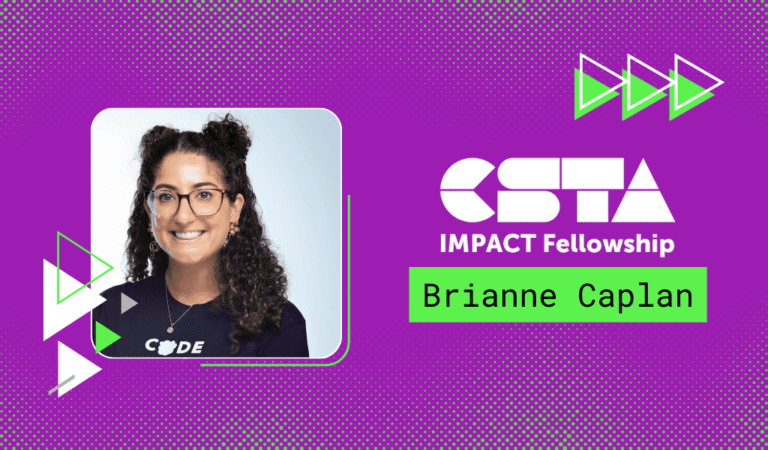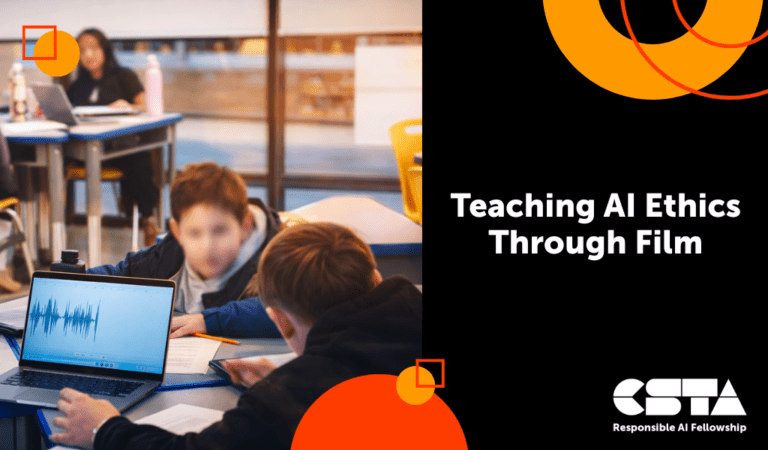Neil Plotnick is a computer science teacher who has been with the Everett Public School District since 2007; he has also worked as a special education inclusion teacher in high school math, science, English, and history. Neil’s specialty is cybersecurity, and he established the school’s innovation pathway eight years ago. He has presented at numerous CSTA regional and national conferences, created curriculum for Cyber.org, and founded the Cybersecurity Educators group on Facebook. When he isn’t teaching, Neil enjoys travel and sporting events with his wife, Lisa; his son, Marty; and their cats, Homer and Robin. Neil is a national winner of the Presidential Award for Excellence in Mathematics and Science Teaching and the NCWIT Aspirations Educator Award, and he has been named Civil Air Patrol’s STEM Educator of the Year and Cyber.org’s Educator of the Year.
When Neil’s son, Martin, was diagnosed with hemiplegic cerebral palsy, Neil understood right away that education would be one of Martin’s biggest challenges. At Martin’s IEP meetings, Neil believed deeply that his son deserved access to all the opportunities the school could afford him, even though traditional academic expectations would not apply to him. Ultimately, his experiences with his son inspired Neil to leave his career in IT and become an educator.
In his own classroom, Neil says, “I have never hesitated to welcome any student in. Working in one of Massachusetts’s most diverse school systems, this has meant that students come into my room from many cultures, speaking different languages, and often suffering from trauma. For all of them, I maintain an unwavering commitment to their learning.”
Many special education students attend “life skills” classes, a separate placement where they receive specialized instruction in core academic subjects. Computer science was not previously included in their curriculum, and inclusion time with non–special ed students was limited to classes like art and gym. However, Neil believed he could introduce these students to computers and computing, while bringing them together with students on the traditional track. With his cybersecurity and programming students, he has hosted a “Computer Petting Zoo,” in which Neil’s students create exhibits and act as “zookeepers” for various computing hardware components, such as the keyboard, mouse, and RAM. The life skills students are the zoo’s guests, each provided with a “visitor’s pass” where they’re able to record information about each exhibit.
Neil also partners his CS students with life skills students for Hour of Code activities each year. Working in pairs, they create dance party videos or other digital artifacts to share with their families, and the district’s special education director creates personalized certificates for each of the students. This annual tradition has been covered in the local newspaper, and Neil takes tremendous pride in hearing that life skills students have continued to seek out coding activities when they return to their regular schedule of classes.
“This is not something that I try to accomplish alone,” Neil says, “and this effort would be impossible without the assistance of my colleagues at Everett High School.” The primary classroom teacher, as well as one-to-one education support professionals, give their time generously to collaborate with Neil on lesson plans and learn basic Scratch coding themselves, so that they can support their students in turn. While these educators don’t have PLCs, they still have to create lesson plans for any joint classes, with learning outcomes identified. Neil’s grateful to his colleagues and his school administration for their support and enthusiasm. “On a personal level,” he adds, “my own son helps me test out the lessons that I develop.”
In the fall of 2024, Neil began teaching a new course called Introduction to Computers. This half-year course gives the life skills students an opportunity to learn coding and podcasting, and to produce digital presentations and other creative projects using computers. Grounded in the years of trust he’s built with his school and colleagues, Neil is proud to say that his school’s special education director gave him freedom to develop the class on his own.
“CSTA’s greatest strength is the community of members,” Neil says, and he hopes to draw on that community during his time as a CSTA Equity Fellow. He is eager to share his own experiences of working with disabled students to help his cohort to understand the breadth and diversity of the kids included under the umbrella of “students with disabilities.” When thinking about ways to welcome these students into CS, he knows it will be crucial to find flexible solutions that can be adapted to as many classroom contexts as possible.
During his fellowship year, Neil would love to create a guide for how to provide CS education to students with disabilities. “Regular education teachers are often overwhelmed with the alphabet soup of diagnoses and accommodations and modifications listed in an IEP,” he says. But he believes he can help demystify some of those terms and support his cohort as co-teachers with the special education teachers in their own schools. Through guidebooks, instructional videos, and other resources, he believes he could help CS teachers learn some best practices, including assessment techniques, when working with disabled students.
“I have been a special education co-teacher for most of my career,” says Neil, “and it’s often an uneasy relationship. But our engagement with the special education teachers is something that all of our CS teachers should learn how to include in their practice.”




